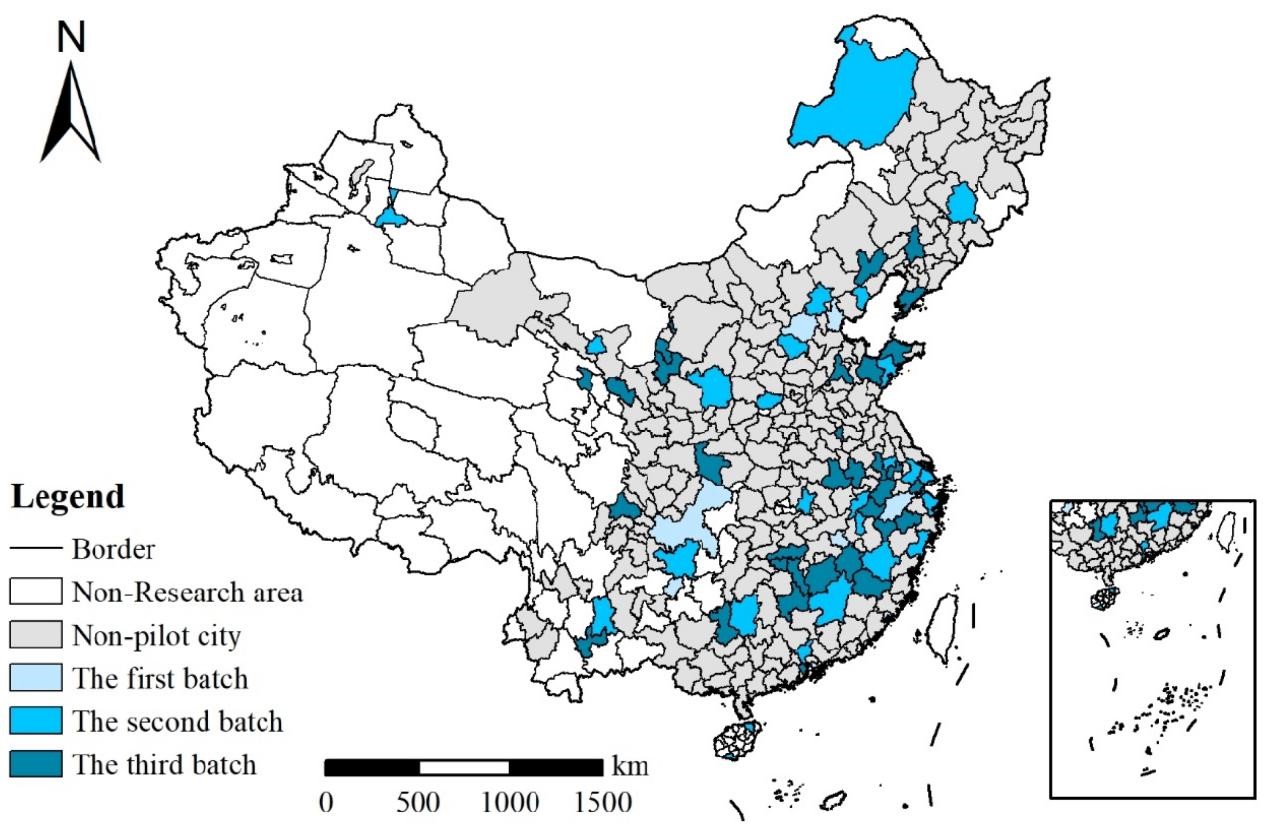The Impact of Low-Carbon Pilot Policies on Urban Land Green Utilization
Abstract
As global climate change becomes an increasingly urgent issue, low-carbon pilot policies have gradually been promoted worldwide as an important measure to address climate change. As a major area of resource consumption and carbon emissions, cities face the challenge of achieving green and sustainable development. This study analyzes the impact of low-carbon pilot policies on urban land green utilization, exploring their role in promoting the greening of urban land resources, reducing carbon emissions, and fostering sustainable development. Using a combination of quantitative and qualitative methods, and drawing on multiple case studies from typical cities, the study reveals the mechanisms through which low-carbon policies affect urban land use. The results show that low-carbon pilot policies significantly promote urban land green utilization, particularly in land development planning, land use efficiency, and ecological protection. This study provides theoretical support for further optimizing low-carbon policies and offers references for other cities' green development.
References
[2] Niu, S., Zhang, Y., Liu, J., Liu, Z., & Ma, L. (2023). Does the low-carbon city pilot policy improve the urban land green use efficiency?—Investigation based on multi-period difference-in-differences model. International Journal of Environmental Research and Public Health, 20(3), 2704. https://doi.org/10.3390/ijerph20032704
[3] Xu, N., Fang, Y., Tang, B., & Wu, Q. (2022). Innovation-driven development and urban land low-carbon use efficiency: A policy assessment from China. Land, 11(10), 1634. https://doi.org/10.3390/land11101634
[4] Chen, C., Zhao, Y., Du, J., & Wang, Y. (2022). Can government low-carbon regulation stimulate urban green innovation? Quasi-experimental evidence from China’s low-carbon city pilot policy. Applied Economics, 54(57), 6559–6579. https://doi.org/10.1080/00036846.2022.2081096
[5] Wang, T., Zhang, Y., Li, W., & Xu, H. (2022). Low-carbon transition and green innovation: Evidence from pilot cities in China. Sustainability, 14(12), 7264. https://doi.org/10.3390/su14127264
[6] Qiu, S., Wang, Z., & Liu, S. (2021). The policy outcomes of low-carbon city construction on urban green development: Evidence from a quasi-natural experiment conducted in China. Sustainable Cities and Society, 66, 102699. https://doi.org/10.1016/j.scs.2020.102699
[7] Zhang, H., Feng, C., & Zhou, X. (2022). Going carbon-neutral in China: Does the low-carbon city pilot policy improve carbon emission efficiency? Sustainable Production and Consumption, 33, 312–329. https://doi.org/10.1016/j.spc.2022.07.002
[8] Kuang, B., Liu, J., & Fan, X. (2022). Has China’s low-carbon city construction enhanced the green utilization efficiency of urban land? International Journal of Environmental Research and Public Health, 19(16), 9844. https://doi.org/10.3390/ijerph19169844
[9] Yin, H., Zhang, J., Zhang, Y., & Wang, Z. (2023). Urban construction and firm green innovation: Evidence from China's low-carbon pilot city initiative. Pacific-Basin Finance Journal, 80, 102070. https://doi.org/10.1016/j.pacfin.2023.102070
[10] Yue, X., Zhang, X., Yu, H., & Liu, Y. (2022). How the pilot low-carbon city policy promotes urban green innovation: Based on temporal-spatial dual perspectives. International Journal of Environmental Research and Public Health, 20(1), 561. https://doi.org/10.3390/ijerph20010561


This work is licensed under a Creative Commons Attribution 4.0 International License.
Copyright for this article is retained by the author(s), with first publication rights granted to the journal.
This is an open-access article distributed under the terms and conditions of the Creative Commons Attribution license (http://creativecommons.org/licenses/by/4.0/).